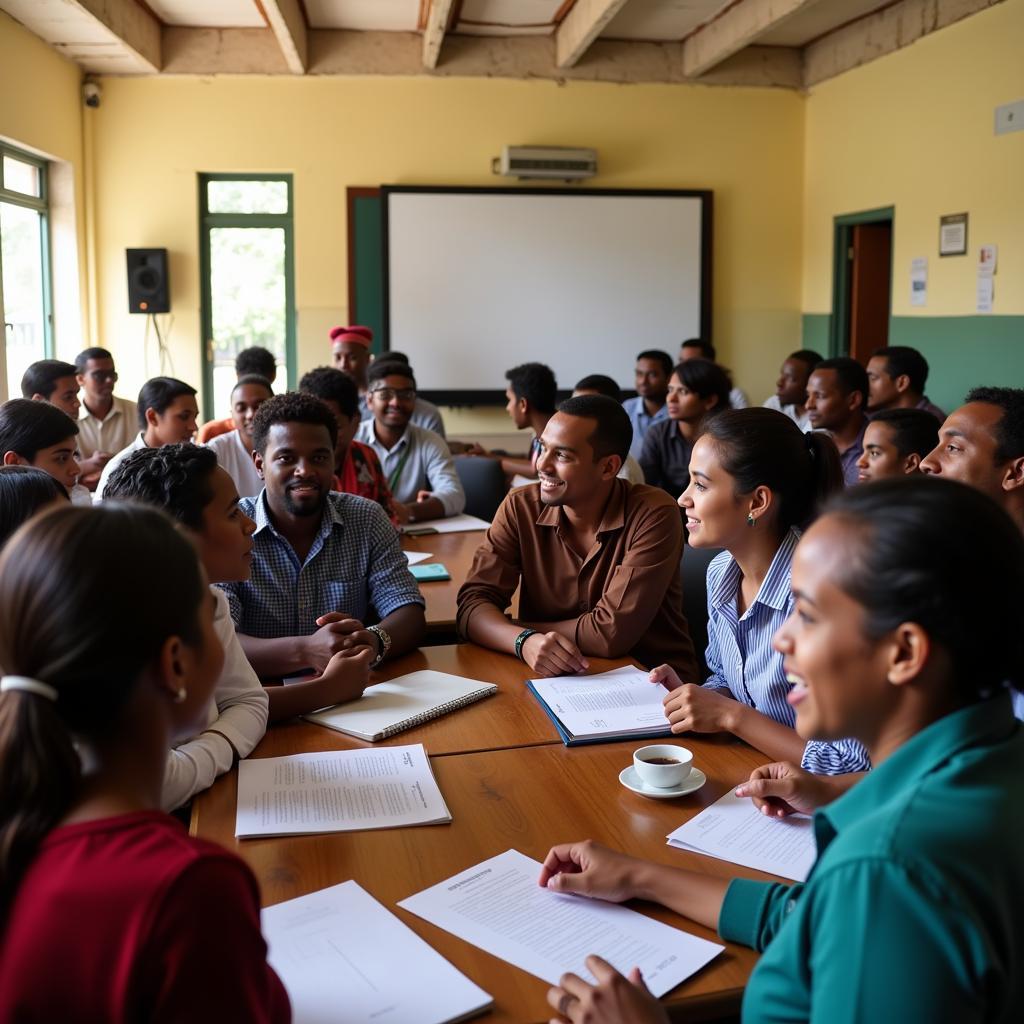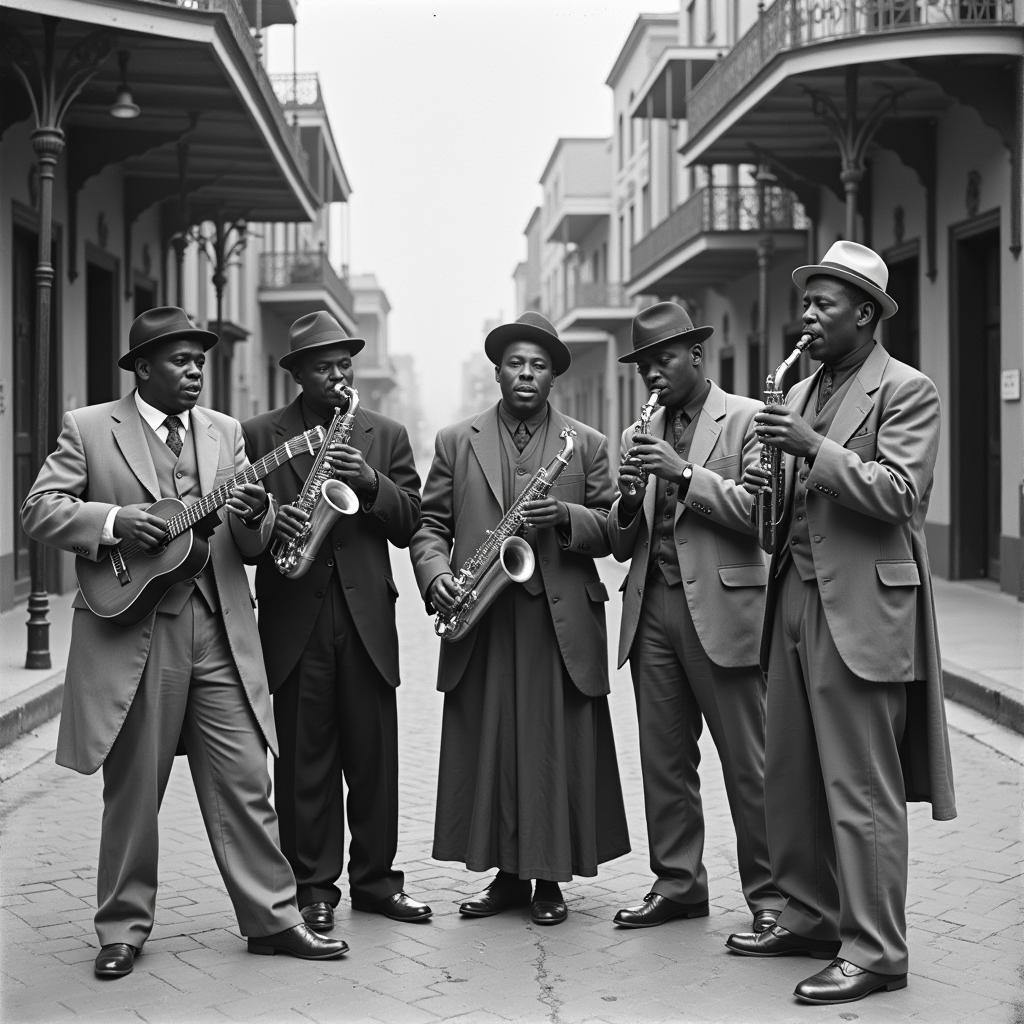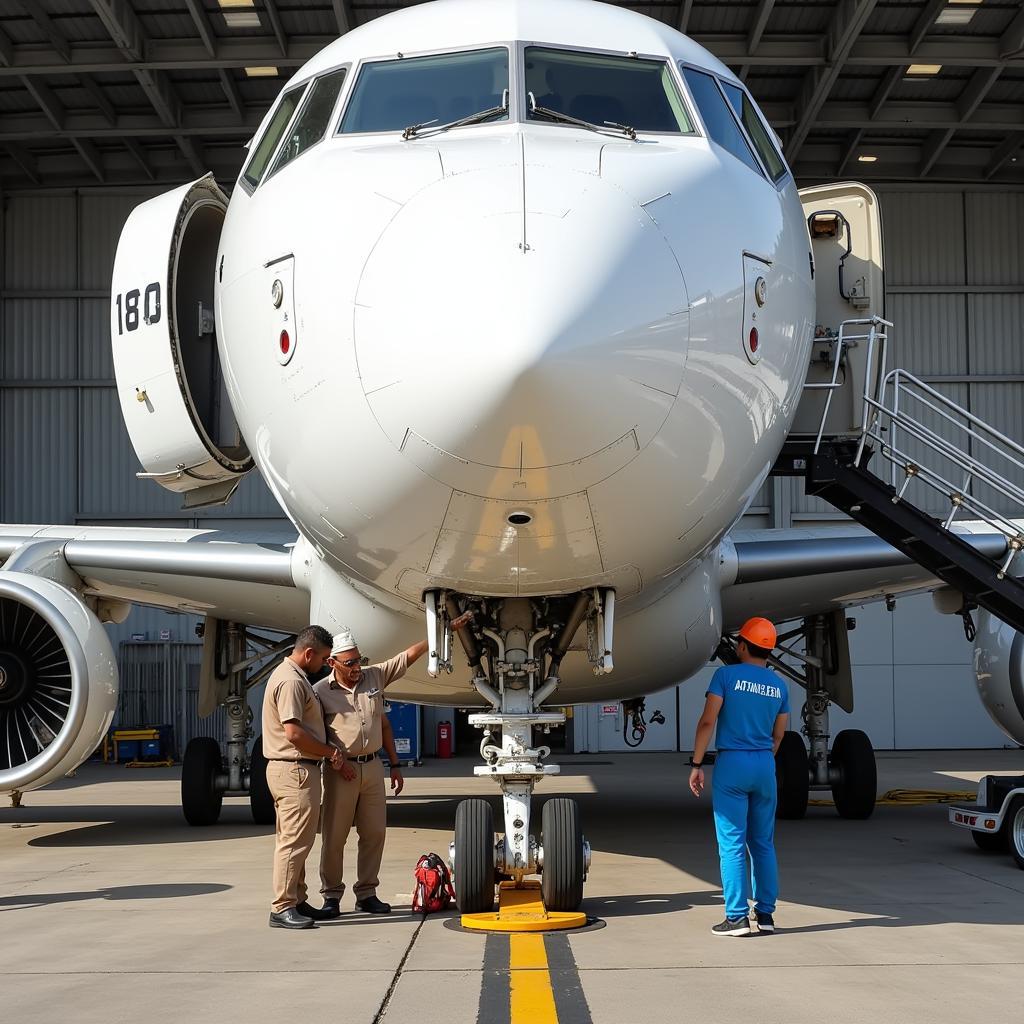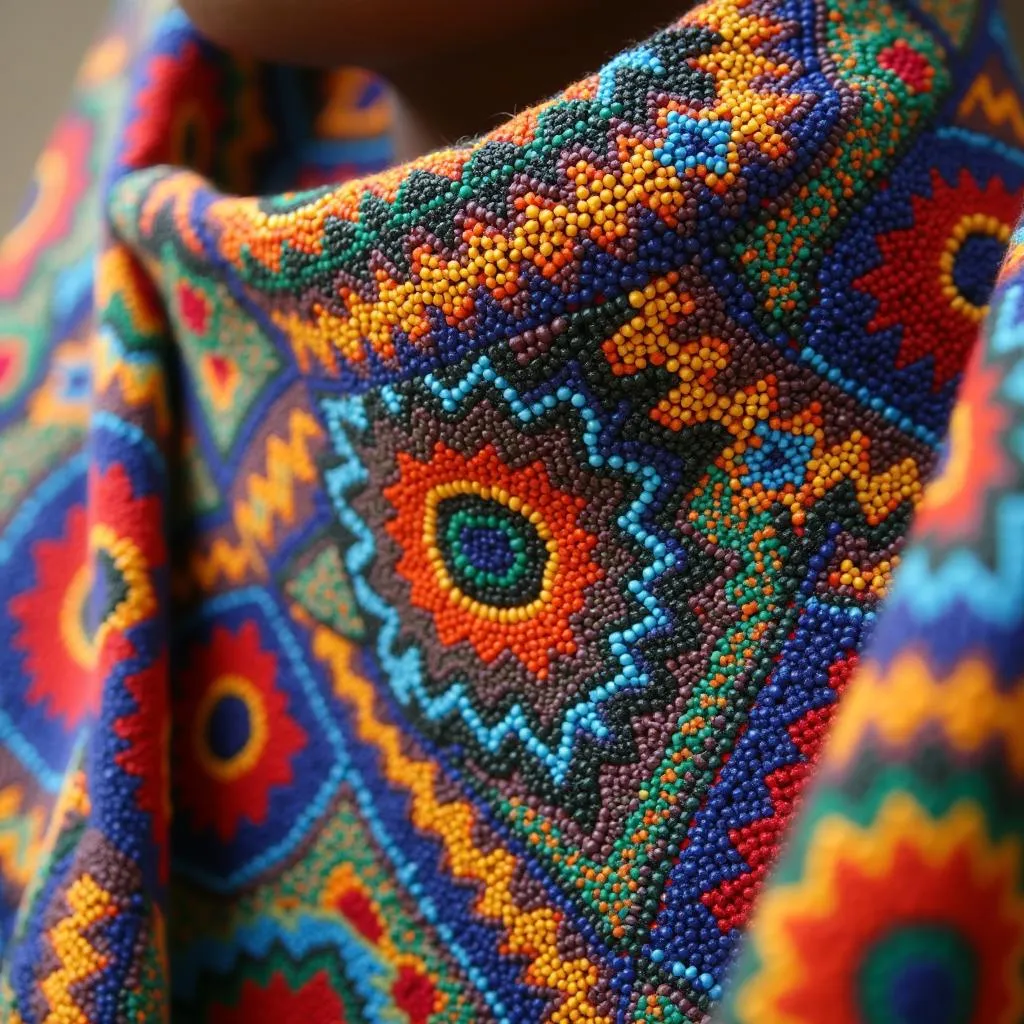African Genetics and Bodybuilding: Uncovering the Myths and Truths
African genetics and bodybuilding is a topic often shrouded in misconceptions. Do people of African descent have a genetic advantage in bodybuilding? What are the specific genetic factors at play? This article delves into the science and realities of African genetics and their influence on bodybuilding potential.
Exploring the Genetic Landscape of Africa
Africa boasts the most diverse human genetic landscape on Earth. This remarkable diversity stems from the continent being the cradle of humankind and the subsequent migrations and adaptations that have occurred over millennia. While this diversity makes generalizations about “African genetics” challenging, it also provides a rich tapestry for understanding the complex interplay of genes and physical traits, including those relevant to bodybuilding.
Genetic variations can influence muscle fiber type distribution, hormone levels, and metabolic rates, all crucial factors in bodybuilding success. However, attributing specific bodybuilding advantages solely to “African genetics” is a vast oversimplification. While some individuals of African descent may possess certain genetic predispositions, these are often influenced by a combination of ancestry, environment, and lifestyle factors.
Muscle Fiber Types and African Genetics
One common area of discussion is muscle fiber type distribution. There are two main types: Type I (slow-twitch) and Type II (fast-twitch). Type II fibers are associated with greater muscle growth potential and explosive power, often desirable for bodybuilding. Some research suggests a higher prevalence of Type II fibers in certain West African populations, potentially contributing to their success in power-based sports. However, this is not universally applicable to all African populations. Individual genetic variations within and between populations play a significant role.
Furthermore, muscle fiber type distribution is only one piece of the puzzle. Training, nutrition, and recovery all contribute significantly to muscle growth, regardless of genetic predisposition.
The Role of Hormones and Metabolism
Hormones like testosterone and growth hormone are crucial for muscle growth. While there are some studies suggesting variations in hormone levels across different populations, these differences are often subtle and not significant enough to account for substantial advantages in bodybuilding.
Metabolic rate also plays a role. A faster metabolism can make it harder to gain weight, including muscle mass. Conversely, a slower metabolism might make it easier to gain weight, but not necessarily lean muscle. Again, individual variations are significant, and generalizations about “African genetics” are misleading.
Debunking the Myths: Addressing Common Misconceptions
It’s crucial to debunk the myth of a universal “African genetic advantage” in bodybuilding. While certain genetic variations might exist within specific populations, these are not homogenous across the entire continent. Moreover, attributing success solely to genetics overlooks the dedication, hard work, and disciplined training required to achieve a competitive physique.
Another common misconception is that individuals of African descent are naturally more muscular. Muscle mass is influenced by a multitude of factors, including genetics, training, nutrition, and hormonal balance. While some individuals might have a genetic predisposition to build muscle more easily, this is not exclusive to any particular ethnicity.
Training and Nutrition: The Foundation for Success
Ultimately, regardless of genetic background, consistent training and proper nutrition are the cornerstones of bodybuilding success. A well-structured training program focusing on progressive overload, combined with a balanced diet rich in protein and carbohydrates, is essential for muscle growth.
Conclusion: African Genetics and Bodybuilding – A Nuanced Perspective
African genetics and bodybuilding is a complex and fascinating topic. While genetic variations within specific populations might contribute to certain physical traits, attributing bodybuilding success solely to “African genetics” is an oversimplification. Hard work, dedicated training, and proper nutrition are the foundational pillars of success in bodybuilding, regardless of ethnic background. Focusing on these principles will yield the best results for anyone pursuing their bodybuilding goals.
FAQ
- Do all Africans have the same genetic predisposition for bodybuilding? No, there is immense genetic diversity within Africa, making generalizations inaccurate.
- Is there a specific “African body type”? No, body types vary significantly within and across African populations.
- Does having “African genetics” guarantee bodybuilding success? No, success depends primarily on training, nutrition, and dedication.
- Can people of non-African descent achieve similar bodybuilding results? Absolutely, with the right training and nutrition.
- Are there any specific dietary considerations for individuals of African descent in bodybuilding? General principles of bodybuilding nutrition apply, but individual needs may vary.
- Are there any genetic tests to determine bodybuilding potential? While some tests exist, their predictive value for bodybuilding success is limited.
- What role does ancestry play in bodybuilding? Ancestry can influence genetic predispositions, but it’s not the sole determinant of success.
Need Help?
When you need support, please contact us via Phone: +255768904061, Email: [email protected] or visit us at Mbarali DC Mawindi, Kangaga, Tanzania. We have a 24/7 customer service team.
Looking for other articles on fitness and nutrition? Check out our other resources related to building muscle and achieving your fitness goals.




